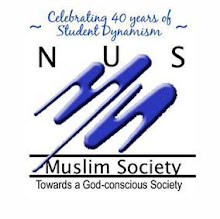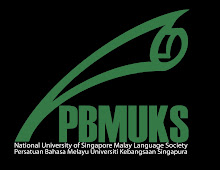On the Shiratul Mustaqim: A Call for Unity in the Ummah
We come across with this term at least 17 times a day. Interestingly, most of us are too ignorant in our daily affairs to actually scrutinize its meaning, although we come in touch with it at a frequency more than the number of meals we consume in a single day.
“Guide us on the shiratul mustaqim.” (Al-Fatihah: 6)
The Shiratul Mustaqim- Have we ever stop to ponder about it?
According to Tafsir Mishbah by Dr M Quraish Shihab, the shirath is taken from the word saratha which means to swallow. In other words, a path is named shirath, to illustrate the wideness of its width, as if it swallows and overwhelms one who is on that path. This differs from the word sabil which also means path or way, in which that there can be many paths and ways but there can be only one shirath. Hence, the shirath carries the connotation of being the one and only true path, whereas for the sabil, they can be numerous in numbers, and they can be both end in truth or in falsehood. As such, all true paths (sabil) lead to the shirath.
Coupled with the term mustaqim, which means straight and the opposite of winding, the shiratul mustaqim would mean “the wide, straight path of truth.” This echoes in resonance with the definition of shiratul mustaqim in Tafsir Ibnu Kathir which means the religion of Islam, which indeed is the only path to truth, as stated in the Qur’an:
“Surely the (true) religion with Allah is Islam, and those to whom the Book had been given did not show opposition but after knowledge had come to them, out of envy among themselves; and whoever disbelieves in the communications of Allah then surely Allah is quick in reckoning.” (Ali Imran: 19)
What strikes me is the term ‘wide’ being used in defining the shirath.
We live in a world where fitna is prevalent, where the differing sects and orientations in Islam jostle with one another to display what they interpret as the ‘true Islam.’ An absolutist worldview, leading to the display of bigotry and antagonism, may result in the act of takfir (denouncing another person’s faith) and even violence within the Ummah!
And all of this come into being when all of us are together on the shirathul mustaqim!
Whether you are Sufi or a Wahhabbi, whether you support the legalistic doctrines of Sheikhul Islam Ibn Taimiyyah or the spiritual discourses of Hujjatul Islam Imam Abu Hamid Al-Ghazali, or whether you are from the Maliki school of thought or the Syafi’i school of thought, it doesn’t really matter, because all of us are still together on the shiratul mustaqim!
Of course, when we talk about the shiratul mustaqim, we mean the message of the Qur’an and the Sunnah of Rasulullah S.A.W, as well as the traditions of the Companions and the tradition of the ulema’, who are the heirs of the Prophet. This is a far cry from the modernist concept of Islam- Western-educated social scientists who claim to be representatives of the religion but are not empowered with sufficient knowledge and understanding in the religious sciences, attempting to interpret the religion using the Western worldview. The awareness of this phenomenal rise of false leaders, as pointed out by the contemporary Muslim thinker, Syed Naquib Al-Attas, should be made known to the Ummah to avoid further confusion within the Muslim world.
Although we may have different opinions, there is one thing that all of us will have to agree- the fact that the woes of the Ummah are largely due to our lack of unity. The lack of progress in the Palestinian conflict, the slow rate of economic progress, the lack of sovereignty of Muslim states in the global political stage, are largely due to the lack of unity. Hence, as suggested by brother Abdul Halim Abdul Karim from the Civilisational Dialogue lectures that I have attended, the key to this unity is a paradigm shift within the Ummah, such that the Ummah adopts an Ummah-centric worldview as stated by the Qur’an:
“Muhammad is the Messenger of Allah, and those with him are firm of heart against the unbelievers, compassionate among themselves; you will see them bowing down, prostrating themselves, seeking grace from Allah and pleasure; their marks are in their faces because of the effect of prostration; that is their description in the Taurat and their description in the Injeel; like as seed-produce that puts forth its sprout, then strengthens it, so it becomes stout and stands firmly on its stem, delighting the sowers that He may enrage the unbelievers on account of them; Allah has promised those among them who believe and do good, forgiveness and a great reward.” (Al-Fath: 29)
Unfortunately, most of us are more comfortable collaborating with unbelievers than our own Muslim brothers and sisters!
The intellectual and intelligentsia class will have an important responsibility to play in order to adopt this worldview. It is interesting to note that, according to Professor Wan Mohd Noh, the successes of Salahuddin Al-Ayubi in the liberation of Jerusalem from the Crusaders is largely attributed to the intellectual works of Imam Al-Ghazali and Sheikh Abdul Qadir Jailani, whose works provided the platform for unity in Islamic thought as well as the revival of spirituality.
Will learning from this lesson help us to resolve the ongoing Palestinian conflict?
Perhaps Dr Kamar Oniah Kamaruzaman would shed us more light on this issue?
Wallahu A’lam.
Hasanul Arifin
National University of Singapore
http://myis-forum.blogspot.com/
“The Quest for Jerusalem: A Religious Perspective”
Talk by Dr kamar Oniah Kamaruzaman
Young AMP Integration Series
The Association of Muslim Professionals (AMP) and Young AMP will be organizing a talk on “The Quest for Jerusalem: A Religious Perspective”. The details are as follows:
Date: Saturday 28 June 2008
Time: 3.30 pm to 6.00 pm
Venue: AMP Auditorium
Association of Muslim Professionals
1 Pasir Ris Drive 4
Level 4
Singapore 519457
Speaker: Dr. Kamar Oniah Kamaruzaman
Associate Professor
International Islamic University of Malaysia
Abstract: The topic delves into the historical aspect of Jews and Muslim based on the revealed scriptures. As a qualified Islamic scholar and having attended several comparative religion and interfaith dialogues and engagements, the speaker will discuss the monotheistic understanding of Islam and Judaism. She will shed some understanding on how Muslims and Jews have been living together in the past civilization in peace and harmony.
Applying a contemporary unique approach, she will explain the wisdom behind the different terms that the Holy Quran uses in addressing the Jews and be able to differentiate between religious and political agendas.
Programme: 3.30pm Registration
4.00pm Welcome Address by Young AMP
4.05pm “The Quest for Jerusalem: A Religious Perspective”
4.40pm Break for light refreshments
5.10pm Floor Discussion
6.00pm Closing Remarks
We appreciate if you could confirm your attendance by completing and returning the attached reply slip by fax to 6583 8028 or by email to Ms Shereen Mohd at shereen@amp.org.sg by Wednesday 25 June 2008.
For further queries, you may contact Ms Shereen Mohd at 6517 4970.




